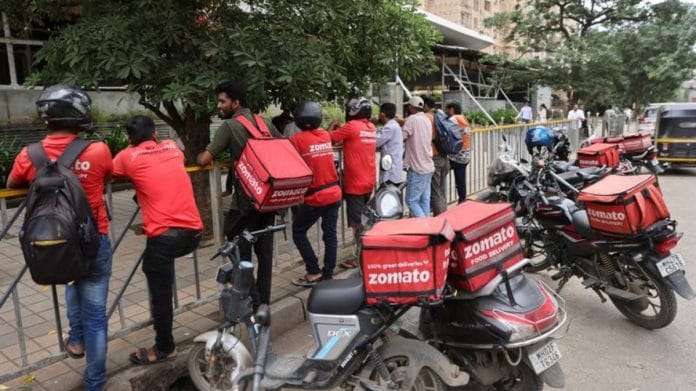A division bench of the Karnataka High Court recently stayed a single-judge ruling that had sent tremors through India’s gig economy. In his September verdict, Justice MGS Kamal had classified Ola drivers as ’employees’ under the Sexual Harassment of Women at Workplace (Prevention, Prohibition and Redressal) Act 2013. This was in response to a 2018 case, where a female passenger was allegedly harassed by her Ola driver in Bengaluru. If upheld, this decision could upend the strides made by digital businesses in supporting India’s casual labour market.
Justice Kamal directed Ola to investigate the conduct of the alleged offender who had been operating its vehicle, as per the PoSH Act. He relied on the code’s broad definition of an employee, which includes individuals engaged in any work with or without an employer’s knowledge, to hold Ola accountable for the actions of this unknown third party.
This raised questions about the growing liability many gig businesses could face for incidents they have limited control over, potentially threatening their viability. It also brings to focus the need to revisit the definition of ’employee’ under the PoSH framework, in light of the new freelance economy.
The Act, which has significantly advanced women’s safety at work, now requires refinement and modernisation. The existing framework may not be best suited to the realities of the gig economy, where numerous freelance service providers within businesses indirectly rely on thousands of independent contractors to engage with millions of customers every day.
Control in a gig environment
Gig businesses operate on two levels: an online interface that connects customers with service providers, and real-world delivery of services by many freelancing or temporary workers. While platforms can control pricing and cab-booking processes, driver pay and appointment processes, and safety features, their influence wanes once a ride begins. At that point, a platform’s control is largely limited to GPS tracking and measures such as the SOS button that each cab is fitted with, driver authentication while on the move, alerts for route changes and extended stops, and so on. Despite these safeguards, passengers may not be fully aware of how to use such features, including the panic button. Just as sophisticated cybersecurity defences can be and are breached, safety controls in the physical world, with so many moving parts, can also fail.
The recent case involving Ola illustrates these limitations though it claimed it had requisite safety protocols such as intermittent identification checks and enlarged driver photos on the app to prevent impersonation. But these failed as the designated contractor-driver swapped places with an imposter who sexually harassed the passenger.
Also read: India must weigh its interests in AI carefully. Don’t just follow California Bill, UNGA Compact
What companies can do
Gig businesses must continually stress-test existing monitoring mechanisms while ensuring driver details are clearly visible and verified by passengers before they board a cab.
Similarly, gig businesses need to improve their grievance redressal mechanisms and establish swift and efficient escalation procedures for serious complaints while compensating victims appropriately. While Ola may penalise wrongful acts by independent contractors, it is unrealistic to expect them to take direct action against a third-party aggressor.
In this case, Ola’s internal complaints committee declined to address the incident, citing the drivers’ independent contractor status. The law demands prompt action against the misconduct of both employees and independent contractors. It would have been better if Ola communicated the details of the steps taken against the driver to the complainant instead of trying to distance itself from the liability.
Also read: Karnataka welfare fund will make entertainment more expensive. And stifle market
Limiting liability
The liability framework for gig businesses could be aligned with the ‘actual knowledge’ standard under section 79 of the Information Technology (IT) Act 2000. This law shields intermediaries from liability for content posted by users unless explicitly notified of its illegality by a court or government order. Extending this standard to PoSH would prevent disproportionate expectations that a business can control third-party actions in millions of unconnected physical interactions and logistical moving parts.
Judicial overreach, while often seen as problematic, can course-correct systemic issues. However, using exceptions to create broad rules, as seen in the Patanjali Ayurveda case concerning misleading ads, can lead to impractical mandates. These guidelines were subsequently amended following public consultations with the advertising industry.
In fact, the PoSH Act originated from judicial activism when the Supreme Court laid down guidelines in 1997 following a brutal sexual assault. Similarly, in the landmark Shreya Singhal verdict, the SC defined the scope of actual knowledge under the IT Act.
The judiciary should aim for a middle ground and remain sensitive to the limitations of online businesses to ensure tech-led economic developments are not stymied, yet businesses must uphold safety standards. As gig work expands – indeed there were 7.7 million gig workers as of 2022 according to government data – recalibrating the PoSH Act to suit a digital-first economy is not just necessary, it’s inevitable.
The author works at Koan Advisory Group, a technology policy consulting firm. Views are personal.
This article is part of ThePrint-Koan Advisory series that analyses emerging policies, laws and regulations in India’s technology sector. Read all the articles here.
(Edited by Zoya Bhatti)






